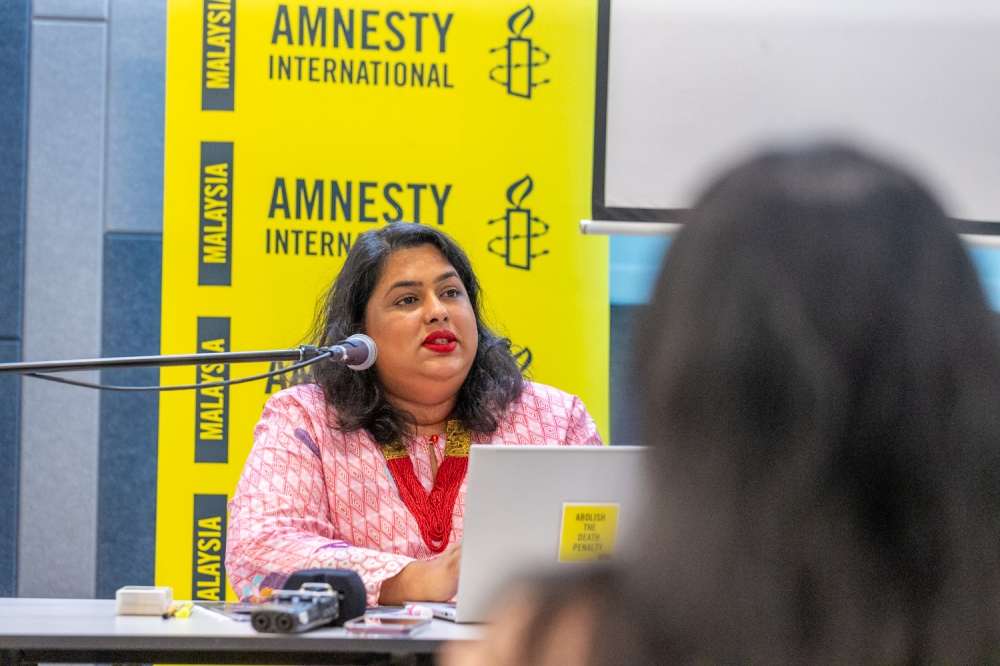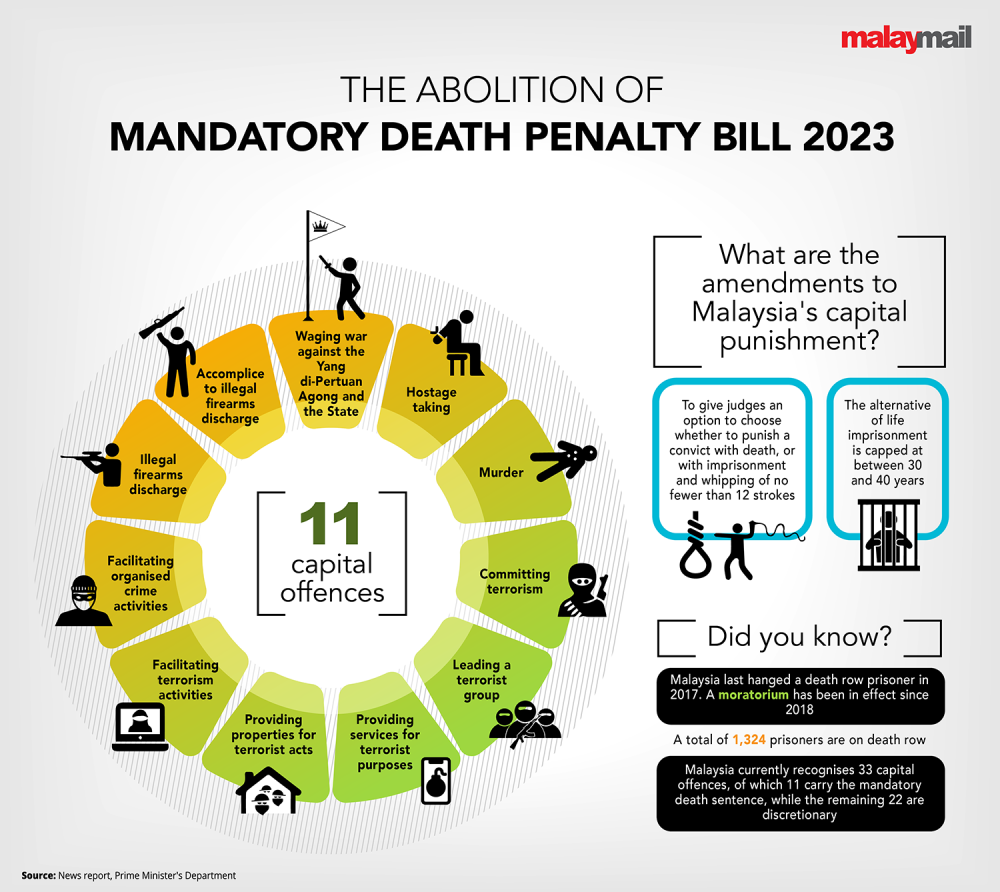PETALING JAYA, May 29 — The Malaysian chapter of Amnesty International has today urged Putrajaya to allow public access to data on the death penalty here, pointing to the lack of transparency among authorities.
Its executive director, Katrina Jorene Maliamauv, said that the human rights watchdog often submitted requests for information to ministers and court registrars but could barely get a reply.
“Transparency of data is central to good governance and for the promotion and fulfilment of human rights. The death penalty applies to all areas of rights,” she told the press after launching its Global Death Penalty report here.
“There ought to be proactive, consistent and detailed data sharing by the Malaysian government on the use of the death penalty, on death penalties, statistics, sentencing updates of the resentencing process and the next steps towards the abolition of the death penalty.
“The public deserves to be fully informed,” she added.
She suggested that the government should utilise the media platforms that were available and make sure that their representatives were equipped with the knowledge.
“So it’s from the ministerial level, but I think this onus of making sure data is available really comes out at every level of government,” she said.
The group further expressed its concern about the lack of transparency, particularly in the pardon process which it labelled as opaque and secretive.

“The pardon process is the last recourse available to prisoners under the sentence of death execution.
“The secretive handling of pardoned petitions in Malaysia has aggravated the mental trauma of the prisoners and their loved ones, and has exacerbated the systematic flaws that undermine the exercise of the right to this last appeal,” she told the press.
The report launched today recorded 1,078 death row prisoners in Malaysia, consisting of 975 male and 103 female prisoners. Among those, 641 of them were Malaysians and 437 were foreign nationals.
There are 38 prisoners currently awaiting execution — 20 of them for drug-related offences and the rest for murder.
In February this year, Amnesty International Malaysia said it recorded a significant decrease in death sentences here within six months after its abolition came into effect in July last year, but was concerned that whipping has instead been used as an alternative punishment in addition to what it deemed as unfair trials.
The Dewan Rakyat had passed the Bill proposing to make the death penalty an option and no longer mandatory, giving judges the discretion on the death penalty rather than requiring them to do so when convicting on offences that made them mandatory.
The amendments in the Bill also include replacing life and natural life imprisonment (until death) as an alternative to the mandatory death sentence, with the new alternative of jail of between 30 and 40 years as well as no fewer than 12 strokes of the cane.
The last death row prisoner was hanged in 2017 but because legislation carrying the mandatory death penalty has remained effective, the courts have been bound to continue sentencing defendants to death despite the moratorium on executions.

For Malay Mail's explainer on the brief history of capital punishment and death row inmates in Malaysia, read here: A brief history of Malaysia’s capital punishment and death row inmates




















